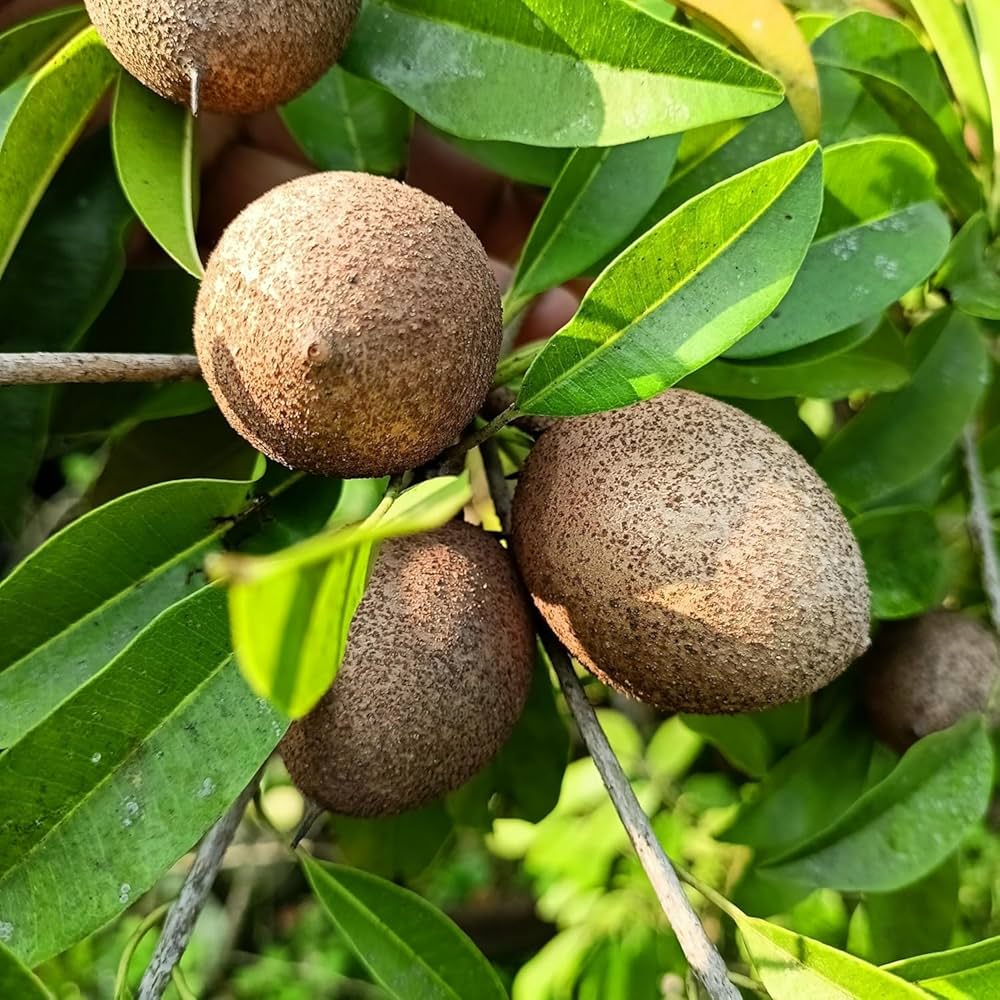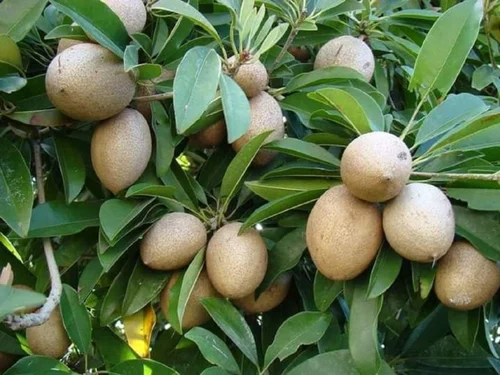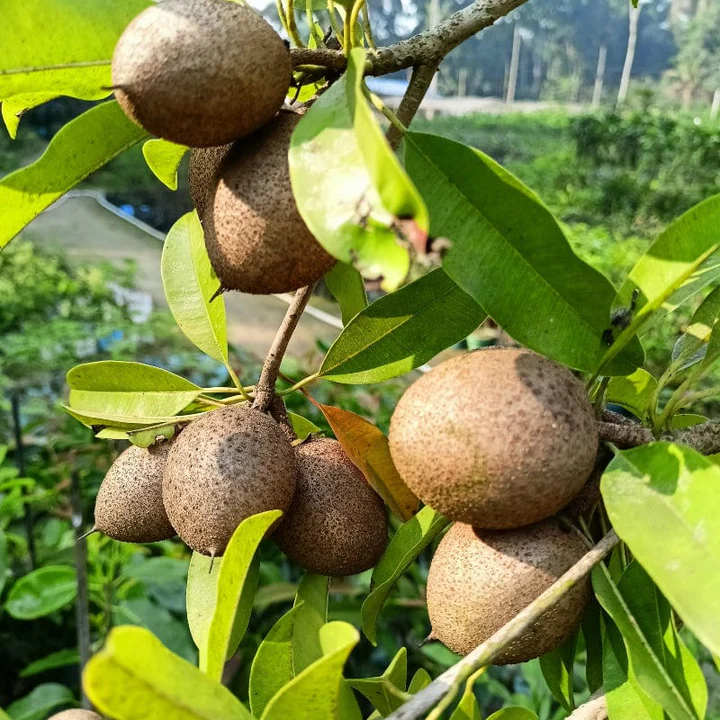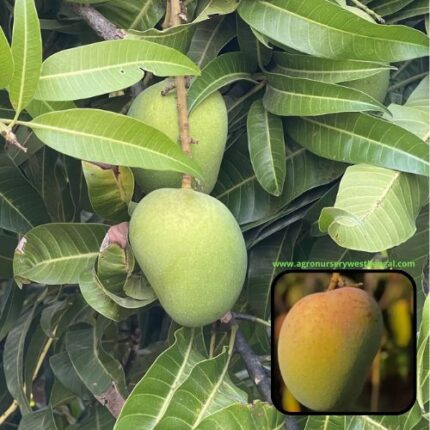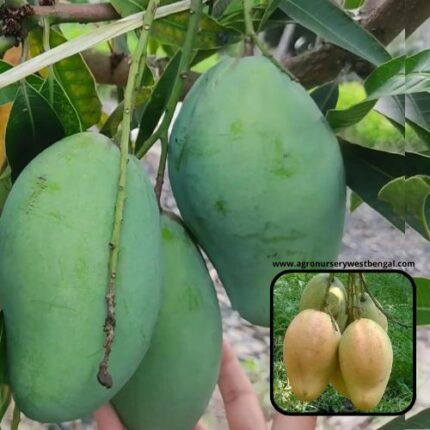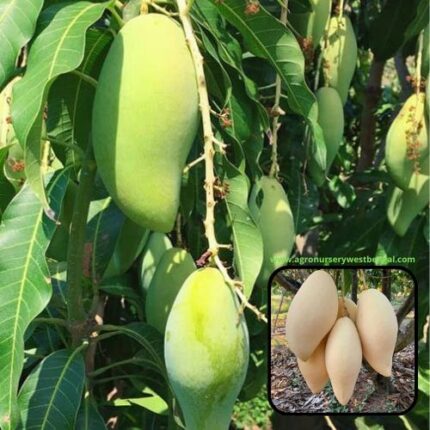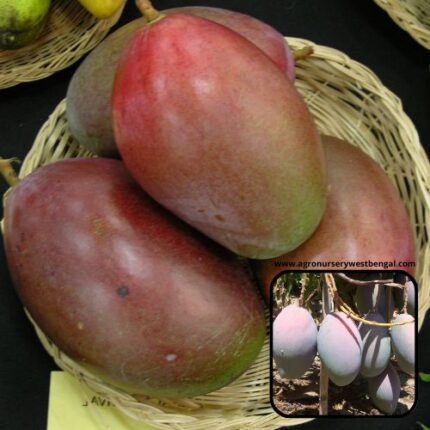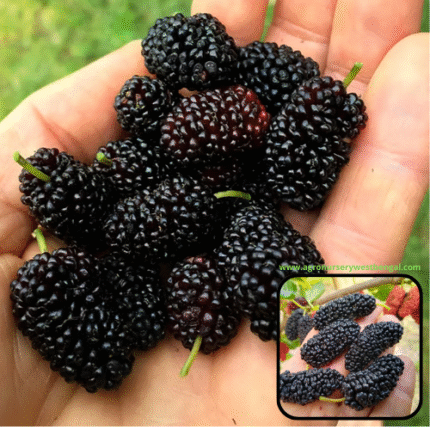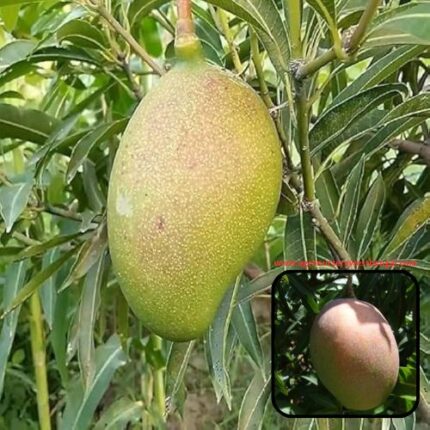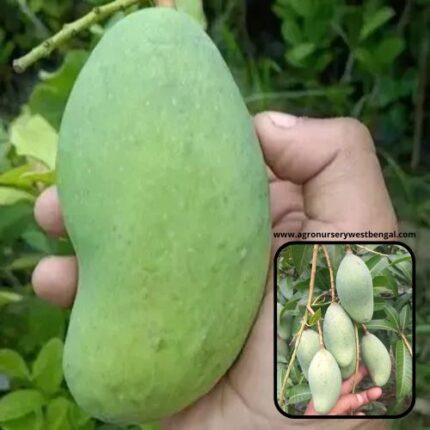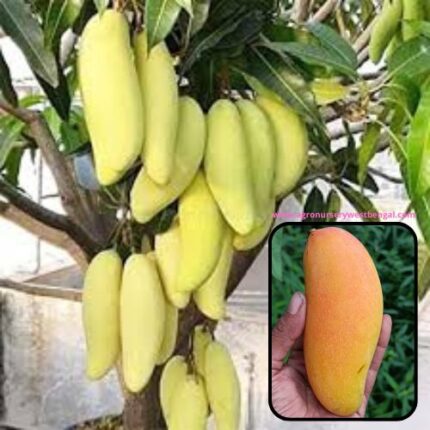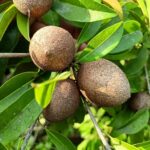
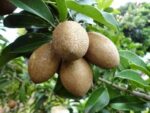
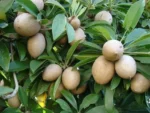
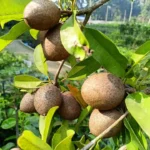
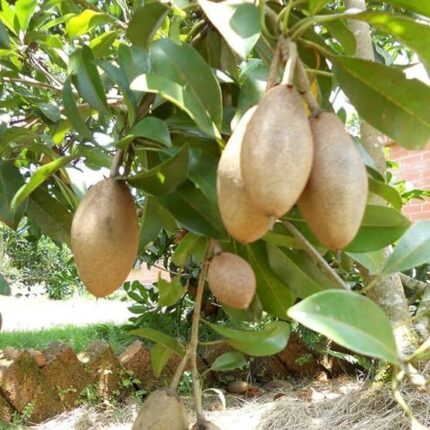
Long Chiku fruit plants
₹799.00 Original price was: ₹799.00.₹499.00Current price is: ₹499.00.
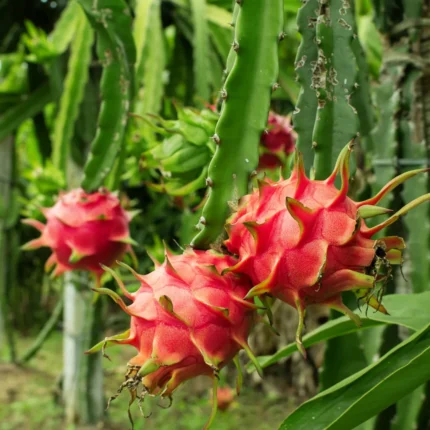
Red Dragon fruit plants
₹499.00 Original price was: ₹499.00.₹299.00Current price is: ₹299.00.
Chiku fruit plants
₹599.00 Original price was: ₹599.00.₹349.00Current price is: ₹349.00.
Category: Fruit Plants
Description
Chikoo, often known as Sapota or Sapodilla (Manilkara zapota), is a highly cherished tropical fruit, particularly popular in India where it’s extensively cultivated and consumed. It’s renowned for its unique, sweet, malty flavor and distinct granular yet smooth texture.
Here’s a detailed description of Chiku:
The Fruit:
- Appearance: Chikoo fruits are typically round to oval or egg-shaped, varying in size from small to medium depending on the variety. The skin is thin, somewhat rough or sandy in texture, and brown in color, bearing a resemblance to a small potato. When fully ripe, the skin can become slightly wrinkled and lose its gritty feel, becoming smoother.
- Flesh: The edible flesh inside ranges in color from a pale yellow to a reddish-brown. It is remarkably soft, juicy, and possesses a characteristic slightly granular or grainy texture, akin to a perfectly ripe pear. The most defining feature of ripe Chiku is its intensely sweet, malty, and caramel-like flavor, often described as a delightful blend of brown sugar, honey, and pear.
- Seeds: Each fruit contains 1 to 12 glossy, black, flattened seeds. These seeds are inedible and should be discarded before consumption.
- Latex (Chicle): Unripe Chiku fruits, as well as the tree’s bark, contain a sticky, white latex known as chicle. This latex is responsible for the astringent and bitter taste of unripe fruit. As the fruit ripens, the latex content significantly diminishes, allowing the fruit’s natural sweetness to fully develop. Historically, this very chicle was the original base for chewing gum.
- Ripeness Indicator: Chikoo is a climacteric fruit, meaning it continues to ripen after being picked. A ripe Chiku will yield slightly to gentle pressure and should feel soft but not mushy. If it feels hard, it is unripe and needs to be kept at room temperature for a few days to ripen.
The Plant (Manilkara zapota):
- Growth Habit: The Chiku tree is an evergreen, slow-growing, and remarkably long-lived tree. In its natural environment, it can reach impressive heights of 10 to 30 meters (30 to 100 feet), although cultivated trees are often kept to a more manageable size through regular pruning. It develops a dense, rounded, and aesthetically pleasing crown.
- Leaves: The leaves are simple, typically elliptic to ovate in shape, and measure about 6-15 cm (2-6 inches) in length. They have entire (smooth) margins, are glossy, dark green on the upper surface, and are spirally arranged, often appearing clustered at the tips of the branches.
- Flowers: The flowers are small (approximately 8-12 mm in diameter), bell-shaped, and relatively inconspicuous, with pale green to white petals. They are borne in the leaf axils, either singly or in small clusters. The tree exhibits multiple flushes of flowering throughout the year.
- Bark: The tree’s bark is dark brown and fissured, and it’s notably rich in the white, gummy latex (chicle).
- Hardiness and Adaptability: Chiku trees are exceptionally hardy and adaptable to various conditions. They are highly drought-tolerant and can thrive in a wide range of soil types, including sandy, loamy, and lateritic soils, provided there is good drainage. They require full sun for optimal growth and fruit production and flourish in warm, tropical, and subtropical climates. They also exhibit good wind resistance.
Cultivation and Varieties:
- Chiku is commonly propagated through vegetative methods like grafting or air-layering. These methods ensure that the desired fruit characteristics are maintained and also lead to faster fruit bearing (grafted plants can start fruiting in 2-3 years, whereas seed-grown plants might take 5-8 years).
- In India, some popular varieties include ‘Kalipatti’, ‘Cricket Ball’, ‘Baramasi’, ‘PKM-1’, ‘CO-1’, and ‘CO-2’, each offering slight variations in fruit size, shape, sweetness, and pulp texture.
Uses and Nutritional Benefits:
- Culinary: The primary and most common use of Chiku is fresh consumption due to its delightful sweetness. It’s also a popular ingredient in milkshakes, smoothies, ice cream, custards, jams, jellies, and various desserts.
- Nutritional Value: Chiku is a highly nutritious fruit. It’s an excellent source of natural sugars (fructose and sucrose), providing an immediate energy boost. It is also rich in dietary fiber, vitamins (especially Vitamin C, Vitamin A, and some B vitamins), and minerals such as potassium, calcium, iron, and phosphorus. Furthermore, it contains beneficial antioxidants and tannins.
- Health Benefits:
- Instant Energy: Its high natural sugar content makes it an excellent source of quick energy.
- Digestive Health: The significant fiber content aids digestion, helps prevent constipation, and promotes healthy bowel movements.
- Immunity Booster: Being rich in Vitamin C and antioxidants, it helps strengthen the immune system and protect against common infections.
- Anti-inflammatory: The presence of tannins and polyphenols gives Chiku anti-inflammatory properties.
- Bone Health: Calcium, phosphorus, and iron contribute to the development and maintenance of strong bones and teeth.
- Skin and Hair Health: Vitamins A and C, along with antioxidants, support healthy skin by promoting collagen production and protecting against oxidative stress from free radicals.
- Heart Health: Potassium helps in regulating blood pressure, and fiber contributes to lowering cholesterol levels, thus supporting cardiovascular health.
- Vision: Vitamin A is crucial for good eyesight.
Chikoo’s unique sweet taste, delightful texture, and extensive nutritional profile make it a cherished and widely consumed fruit, especially in the tropical and subtropical regions where it thrives

